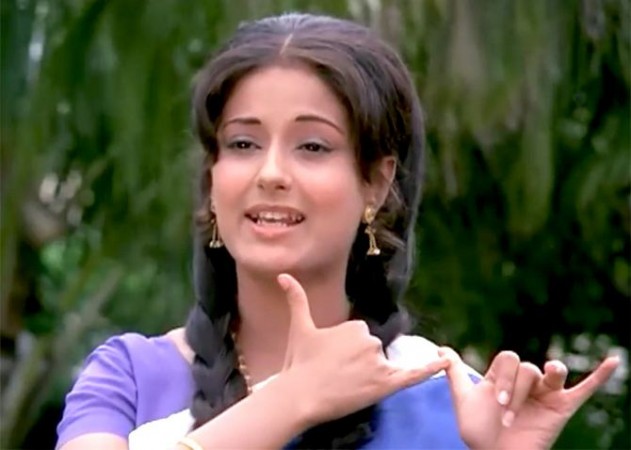
Indelible imprints have been made on the Bollywood landscape by Moushumi Chatterjee, a name that is familiar to fans of Indian cinema. She became a Hollywood superstar in the 1970s and 1980s thanks to her stunning appearance and excellent acting abilities, enthralling audiences as the ideal leading lady. With the release of "Aangoor," she experienced a significant change in her career and the end of her time as a full-fledged heroine. This article examines Moushumi Chatterjee's journey, her break from acting after the birth of her second daughter, and her shift to supporting roles, all of which are encapsulated within the context of "Aangoor."
Born on April 26, 1948, in Kolkata, India, Moushumi Chatterjee began her career in cinema in 1967 with the Bengali film "Balika Badhu." Her early work in Bengali film provided a platform for her talent to shine and opened doors for her to work in Bollywood. Her rise to fame in the Hindi film industry was sparked by the 1973 film "Anuraag." She won a Filmfare Award for Best Actress for her portrayal of a cancer patient who is near the end of her life. She had only just begun her career as a leading lady in Bollywood.
Moushumi Chatterjee made a name for herself as one of Bollywood's most sought-after heroines during the 1970s and the early 1980s. She was renowned for her adaptability and capacity to take on a variety of roles, from family-friendly films to romantic dramas. Her popularity was boosted by her on-screen chemistry with illustrious actors like Amitabh Bachchan, Rajesh Khanna, and Dharmendra. Moushumi came to be associated with grace, elegance, and charm.
After the birth of her second daughter, Moushumi Chatterjee decided to take a break from acting at the height of her career. She was already recognised as a leading lady in the business, so choosing to put her family first was a deeply personal choice. Among actresses of her generation, who frequently struggled to strike a balance between a successful career and family life, this break from acting was not unusual.
Moushumi Chatterjee went away from acting for a year or two before coming back. However, during her absence, Bollywood's environment had changed. The industry was changing, with fresh faces and styles emerging. Moushumi discovered that she gradually moved from starring roles to supporting ones, frequently playing characters who were older and more experienced.
The movie "Aangoor" from 1982, which marked a significant turning point in Moushumi Chatterjee's career, came out at this time. This comedy-drama film, which was directed by Gulzar, featured her in a supporting role, a departure from the previous films in which she had the lead role. The plot of the movie focused on false identities, which caused a series of hilarious things to happen.
Moushumi played the role of Seema in "Aangoor," a woman caught in a web of confusion and false identities. Despite the fact that her role was not the main focus of the movie, she gave a standout performance that demonstrated how versatile she is as an actress. Sanjeev Kumar and Deven Verma were part of the ensemble cast, which gave the movie extra charm.
The presence of Moushumi Chatterjee in "Aangoor" was significant despite her supporting role. Her acting skills were on display in how easily she transitioned from playing the lead to a supporting role. The character of Seema gained complexity and authenticity from her, which helped the audience identify with her. Both critics and viewers praised Moushumi's performance because the actress had a natural flair for comedy that shone through in the movie.
The movie "Aangoor" marked a turning point in Moushumi Chatterjee's acting career as she gracefully transitioned into a new role as a character actress. Even though her days as a leading lady were over, she kept making a difference in Indian cinema with her enduring performances in supporting roles. Her transition from the glitz of the leading lady to the delicacy of the supporting actress serves as an example of the value of flexibility and adaptability in the ever-changing world of film for many aspiring actors.
In "Aangoor" (1982), Moushumi Chatterjee went from a leading lady to a supporting character, demonstrating her growth as an actress and her ability to keep up with the shifting trends in the Bollywood industry. Her determination to put her family first and her successful return to acting as a character actress are examples of her talent and fortitude. Moushumi Chatterjee's performance in "Aangoor" may have signalled the end of an era for her, but it also heralded the beginning of a new chapter in her illustrious career, ensuring her enduring legacy in Indian cinema.
The Untold Story of Kareena and Bipasha's On-Set Clashes
Raghav Chadha's Rajasthan Wedding Draws Punjab Police, Sparks Controversy